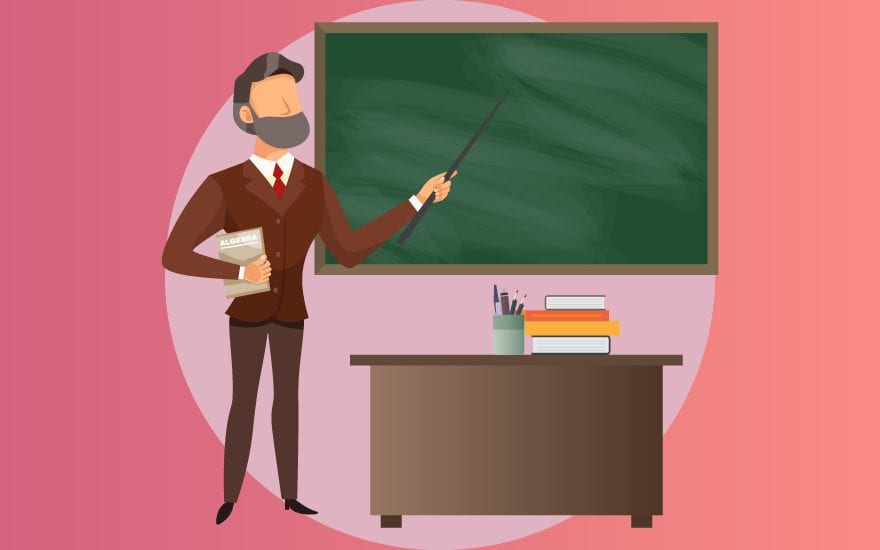Mon-Sat 9am-7pm




A counsellor is someone who helps people in need by supporting them when they experience emotional difficulties and guides people on personal, career, lifestyle, and relationship issues.
Counsellor:
A counsellor is someone who helps people in need by supporting them when they experience emotional difficulties and guides people on personal, career, lifestyle, and relationship issues.
Different Types of Counsellors
A counsellor supports and guides clients with issues, which can arise in any sphere of their lives. As a result, a counsellor can don many hats and work in many different domains. Here are the 4 most common types of counsellors.
1. School Counsellor
School counsellors work at the school level (usually as an in-house counsellors) and help students to deal with social, behavioural, personal and academic problems that arise at this crucial stage of their lives.
2. Rehabilitation Counsellor
Rehabilitation counsellors help people deal with the personal, social, and vocational effects of disabilities. They help people with both physical and emotional disabilities caused by birth defects, illness or disease, accidents, and other causes.
3. Mental Health Counsellor
Mental health counsellors address and treat mental and emotional disorders. They use therapeutic techniques to deal with issues such as depression, anxiety, addiction, suicidal impulses, stress, trauma, low self-esteem, grief, etc.
4. Career Counsellor
Career counsellors (like me) help high school students, college students and working professionals to find direction in their careers and resolve career-related issues. They help people to know and understand themselves to make career, educational, and life decisions.

Step 1: Opt for any Stream with Psychology in Class 12th
You can hail from any stream in class 12th, however, you should keep Psychology in your list of subjects (not mandatory). The PCB stream may also give you some advantage when dealing with the physiological and neurological aspects of Psychology.
Step 2: Pursue B.A/B.Sc in Psychology or Applied Psychology for 3 years
The next step in your journey is to take up Psychology for your undergraduate.
Knowledge of areas like general psychology, abnormal psychology, counselling psychology, personality psychology and statistics is useful for a career in counselling. You should also aim to do as many internships in the domain of counselling to get hands-on experience while witnessing the daily job roles of a counsellor. It will additionally demonstrate dedication to the profession and potentially put you in contact with professionals who can help you in gaining skills.
Some leading colleges to pursue B.A /B.Sc. in Psychology/Applied psychology in India:
Step 3: Pursue M.A/M.Sc in Counselling Psychology/Psychology/Applied Psychology for 2 years
To gain practical knowledge of your field, and to specialise in counselling, you’ll need a master’s degree. You will study counselling theories, social and cultural diversity issues in counselling, career development and counselling, research methods and much more. You’ll also complete internships and dissertation work to meet the criteria to receive the degree.
Admission to the various colleges will be through entrance exams or your marks in graduation along with the interview. Many institutes let you take up psychology for your master’s even if you have not studied it at the undergraduate level.
Some leading colleges to pursue M.A / M.Sc. in Psychology/Counselling Psychology in India:
Step 4. Pursue a PG Diploma in Guidance and Counselling for 1 year (Optional Step)
An additional step you can take to double down on your counselling skills is to do a 1-year diploma in guidance and counselling. Numerous institutes offer this course, to help you hone your counselling skills and gain practical knowledge and certification in counselling.
Such diploma courses are particularly relevant for people who do not hold a master’s in psychology, yet want to build their career in counselling. Try to ensure that the course you pursue is recognised by the Rehabilitation Council of India (RCI).
A few institutes offering PG Diploma in Guidance and Counselling include:
Note – We are discussing the most recommended path to becoming a counsellor. You may choose not to go this way. For example, many people alternatively pursue a Master’s in Social Work to enter the field of counselling (esp. by following it up with a PG diploma in counselling).
However, at least one degree in Psychology is highly recommended, since it helps you understand the intricacies of the human mind, and enables you to better face the challenges of the field.
Gone are those days when people used to approach their elders for guidance in every phase of life. Due to changes in our lifestyle, society and families, individuals are increasingly facing the need to get guidance and support at different phases in their lives. As a result, the scope of counselling in India is also increasing exponentially.
After completing your post-graduation, a few of the areas you can work in include:
Although opportunities for paid counselling work are increasing, many roles are still purport-time voluntary and there tends to be little room for promotion. In health or educational settings, for example, management opportunities exist but these usually mean less time spent with individual clients and more on strategy and policy implementation.
You can take on increased responsibility in training or supervision, or choose to specialise in an area such as:
Working overseas is another option if you're seeking new and varied opportunities. This may be possible through an international charity.
You could also establish yourself as a self-employed counsellor, once you've gained enough experience. It may take time to build your client base and income but it may provide greater flexibility and new opportunities.
Salaries vary depending on a range of factors including the type of employer, location, whether you're in private practice, your experience, and specialist skills. Some counsellors work on a voluntary basis, on helplines for example, and don't receive a salary.
As a psychotherapist, you will help people to reflect on their lives and relationships and give them the tools to manage those aspects that are causing them anxiety, sadness, anger, or pain. The ability to assist others to be more balanced, happy, and at peace with themselves is incredibility rewarding and, unquestionably, one of the best perks of the job.
:People turn to psychotherapy because they feel “stuck” – stuck in patterns of behavior and feelings that are causing them to suffer and that they feel unable to change or deal with. The psychotherapy process requires patients to openly confront pain, stress, and emotional suffering in their lives, which can be extremely draining for both them and you. You will also have to be emotionally available to clients who are often angry and disrespectful. It’s imperative, then, that you have thoroughly dealt with your own emotional “baggage” in order to be able to remain committed and objective.
Call us at +91 9205084085, Monday - Friday, 9 am - 7 pm


